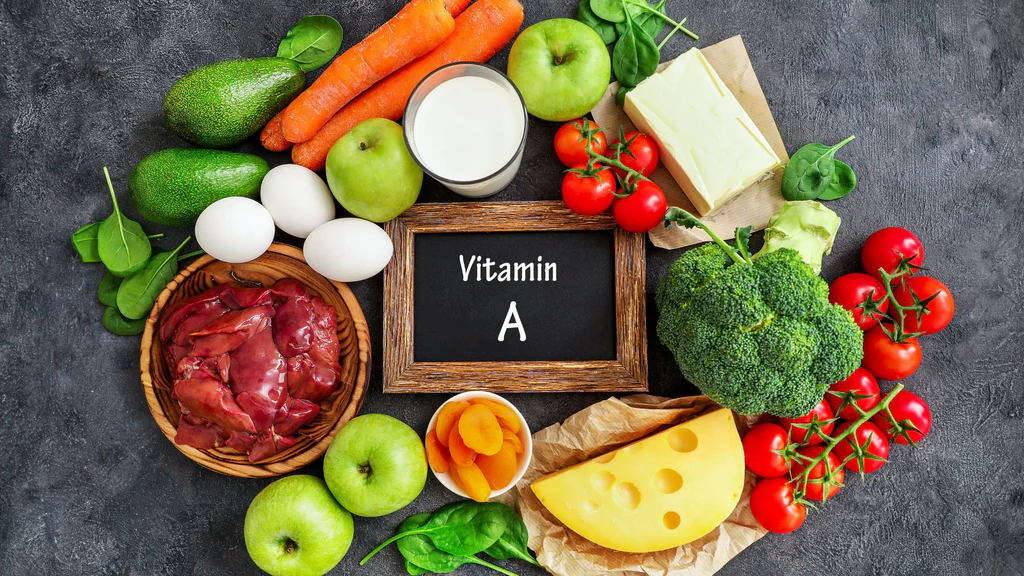It’s part 2 of our Deep Dive on the topic on Vitamin D.A.K.E. today we talk Vitamin A
Vitamin A is an essential nutrient that plays a vital role in maintaining our overall health. This powerful vitamin contributes significantly to various bodily functions, including vision, immune response, and skin health.
What is it?
Vitamin A exists in two primary forms: retinoids, found in animal sources, and carotenoids, found in plant foods. Retinoids are the active form of the vitamin, while carotenoids are precursors that the body converts into vitamin A as needed
Health Benefits of Vitamin A
- Importance for Vision: Vitamin A is crucial for eye health, preventing night blindness and supporting overall vision. It helps maintain the health of the cornea and supports proper functioning of the retina.
- Role in Immune Function: This vitamin enhances the immune system’s response, helping to protect the body against infections and illnesses.
- Contribution to Skin Health: Vitamin A aids in maintaining and repairing skin tissue, promoting a healthy complexion.
- Importance in Reproductive Health:Vitamin A plays a role in fetal development during pregnancy and supports reproductive health in both men and women.
Sources:
Many foods are rich in it, including
- Carrots
- Spinach
- Liver (beef or chicken)
- Dairy products (milk, cheese)
Should We Supplement?
While obtaining it through diet is generally recommended, some individuals may require supplementation. Those at risk of deficiency include:
- People with certain digestive disorders preventing nutrient absorption.
- Pregnant women, particularly those who follow restrictive diets.However, excessive intake from supplements can lead to toxicity, causing symptoms such as dizziness, nausea, and even liver damage. It is essential to consult with a healthcare professional before starting any supplementation.
Conclusion
In summary, it is crucial for maintaining optimal health, particularly for vision, immune function, and skin health. While supplementation may be necessary for some individuals, it is generally best to obtain this vitamin through a balanced diet rich in colorful fruits and vegetables.
https://nutritionsource.hsph.harvard.edu/vitamin-a/
Thank you for reading! If you have any questions or would like to learn more about nutrition, feel free to reach out.
- Also you can see more on our Vitamin DAKE series HERE

